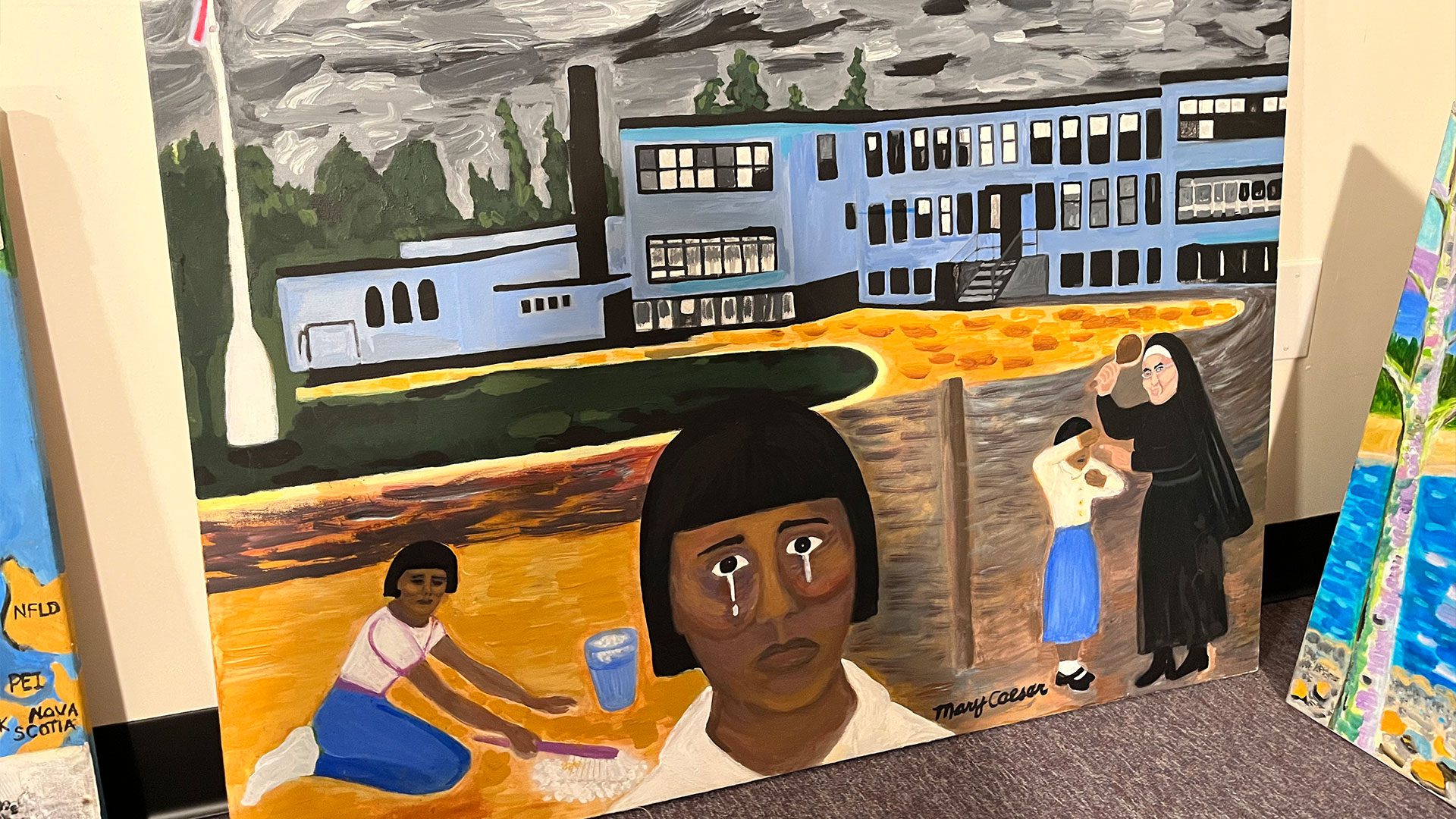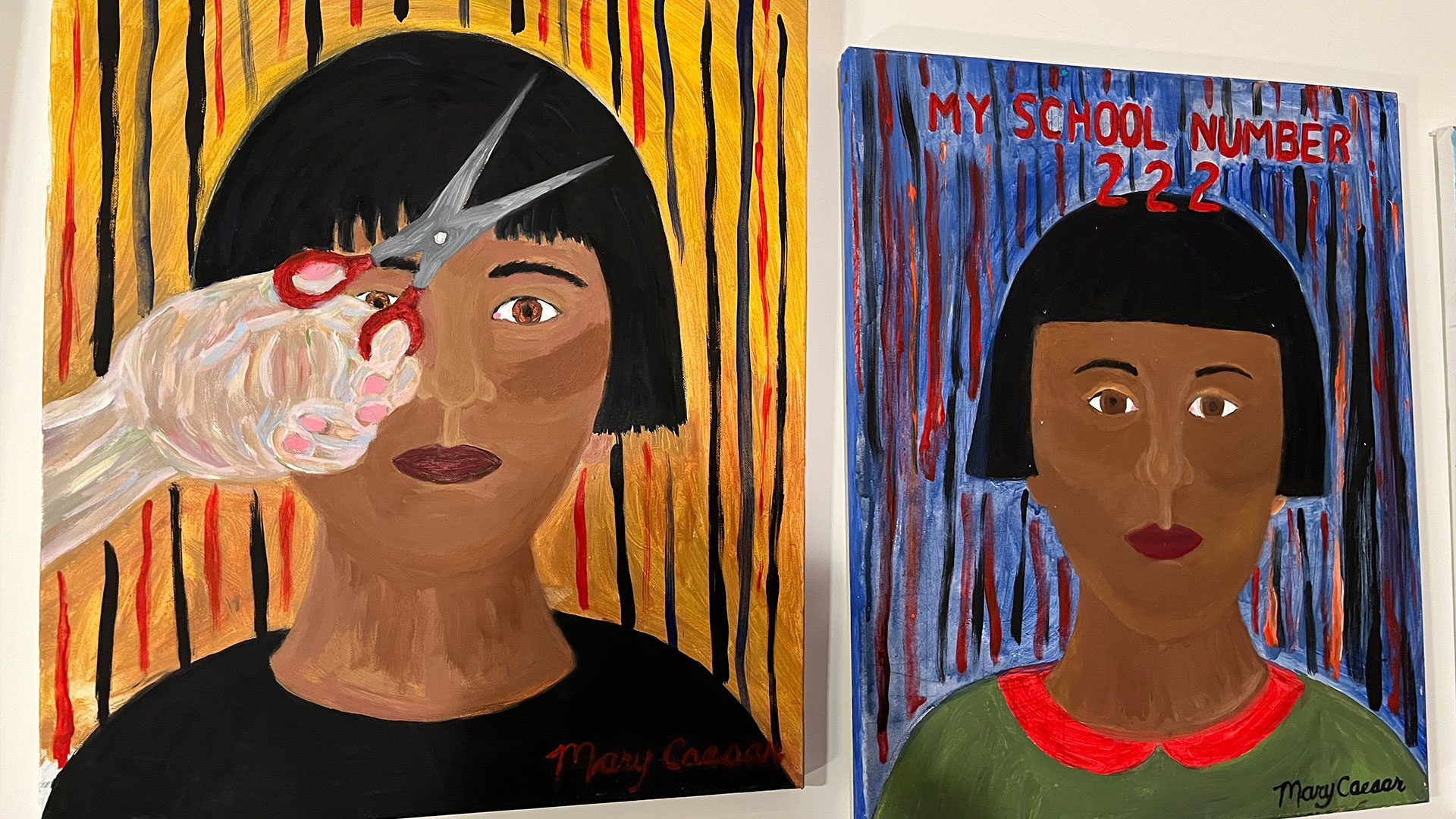Mary Caesar always knew she’d survive residential school so she could one day tell her story.
Now an Elder, her experience there has never been forgotten – and is remembered through her paintings.
“It was four years of just terror and violence and abuse,” she said. “I’m still healing from the memories of the abuse I went through there.”
The Catholic run school operated from 1951 to 1975. While the school building was demolished in 2021, its legacy continues to haunt survivors.
Caesar is one of them.
While a student at Lower Post, Caesar suffered horrific physical, emotional and sexual abuse.
She can still recall how one particular nun took special pleasure in terrorizing her.
It’s a trauma she grapples with through her painting.
“I remember we were all always punished for just for anything, any small acts of whatever, we were beaten by the nun. She’d just punch us in the face, punch us in the head on her ears,” she said.
Art and healing
The wounds from residential school devastated Caesar’s life and she turned to alcohol to cope.
After getting sober in 1991, she traveled to B.C. where she earned a fine arts diploma from what is now known as Vancouver Island university.
It was around that time she knew she had to tell her story.
“I believe that it’s part of Canada’s history and it should never be forgotten…It affected my life. I’m still healing from that experience,” she said.

Painting is where Caesar found her niche, and many of her paintings depict her experience in residential school.
In one painting, she depicts herself as a young girl with her residential school number. In another, she portrays a scene of herself scrubbing the floor with a toothbrush and being beaten with a ping pong paddle by a nun.
While the subject matter is distressing, Caesar said her artwork is cathartic and allows her to reflect on the past in a holistic way.
“I feel as a residential school survivor, my experience is just like the Holocaust survivors where I could relate to their survival stories,” she said.
“It’s part of my life, it’s part of my history.”
Sharing her story
Caesar left Lower Post in 1964 and completed the rest of her education at a day school.
Thanks to her parents, she was able to reconnect with her Kaska culture and the land, subject matter she likewise depicts in her paintings.
Since becoming a serious artist, her paintings have been showcased across Canada and Europe.

Caesar feels it’s important to share her story with those who are unfamiliar with Canada’s past.
“(I want Europe) and the world to know our history here in Canada, what we suffered, by the government, the churches and even the (RCMP),” she said.
“Racism was the driving force at the residential school system, and it was a genocidal policy.”
Finding peace
As discoveries of potential unmarked graves continues to make headlines across Canada, Caesar is reminded of her own trauma.
Those discoveries hit even closer to home for Caesar this week.
On Sept. 26, officials announced 15 potential unmarked graves were located at former Chooutla Indian residential school in the Yukon community of Carcross.
“It’s just devastating and it’s emotional for me as a survivor,” she said.
Caesar is hopeful the people and institutions that hurt children like herself can someday be held accountable.
“We need justice for all the crimes that were crimes against us, that were committed by the government, the churches, by the RCMP. There has to be some kind of retribution or something…We’re still affected,” she said.
Despite her heartbreaking experience, Caesar has kept painting throughout it all, finding her strength one paintbrush stroke at a time.
As she continues to find peace with the past, she’s grateful art has helped with the process.
“It’s part of my healing. I’ve been on this healing journey for a long time.”










